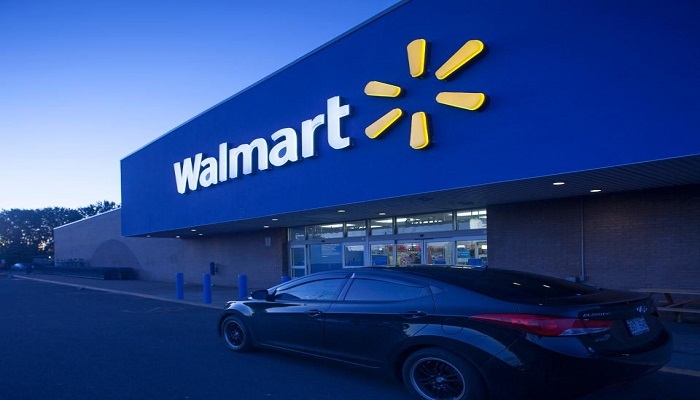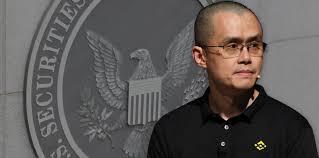Why does Walmart need a "Walmart Coin" cryptocurrency?

Just two months after Facebook launched the digital currency project Libra, the US Patent and Trademark Office disclosed that Wal-Mart had applied for a cryptocurrency patent, and it is expected that a stable dollar linked to the US dollar will be launched.
Sure enough, the news that Wal-Mart plans to issue the currency immediately triggered a hot discussion in the community. Many people are speculating about what the retail giant’s gourd wants to sell, such as:
- Does Walmart intend to compete with Facebook Libra?
- Will Wal-Mart CEO Doug McMillon defend his right to innovation in front of Congressional legislators?
- Oh, Wal-Mart has more than 2 million employees worldwide. If they all use "Walmart Coin" (let's call it for the time being), it's easy to roll out the development of the emerging global encryption economy.
- Or will Wal-Mart and Facebook join forces (sell Wal-Mart buys Facebook)? This way the cryptocurrency can be easily spread on the retail side.
In fact, as early as a year ago, people foresaw that Wal-Mart would definitely enter the blockchain field, but at that time people simply thought that Wal-Mart would only use blockchain technology in tracking food and optimizing supply chain. Will use the self-issued cryptocurrency in their own store – but now it seems that this idea is outdated.
- The first anniversary of Shenzhen blockchain electronic invoices: nearly 6 million invoices, amounting to 3.9 billion yuan
- Analysis of the trend of gold and bitcoin in the first half of 2019 – Who is the king of risk?
- Samsung's blockchain ambition: from bystanders to layout people (with Samsung blockchain events)
So the question is, if Wal-Mart really launches a cryptocurrency, what can they do? Let's let Star Jun (O-daily) and everyone analyze the following possible application scenarios:
1. Become an ecosystem payment mechanism. According to the patent documents submitted by Wal-Mart, their proposed digital currency may be linked to the US dollar and can only be used by designated retailers or partners. If "Walmart Coin" can be used in other potential implementation cases, it means that the digital currency can support free (or lower) payment transactions or as a value storage tool. Consumers can use it at other retailers and, if needed, convert it to cash;
2. Providing banking services to those who do not have a bank account. According to the patent application information submitted by Wal-Mart, they mentioned that many low-income families cannot obtain banking services because the financial services of banks are very expensive, so they need another way to deal with daily wealth and product needs, and “Walmart Coin” Can meet this need;
3. “Destroy” the credit card. Also based on the patent application information submitted by Wal-Mart, one of the other potential innovations of “Walmart Coin” has attracted people’s attention, that is, it may eliminate people’s demand for credit cards, and may even allow people to obtain a biometric-based Credit model (such as fingerprint or retina). According to industry insiders, Wal-Mart mentioned in its patent that in the future, human beings will become their own “bank credit cards” with digital value.
According to a previous analysis by Bloomberg, they believe that Wal-Mart seems to be considering whether to explore the world of cryptocurrencies in the same way as Facebook. But this is not the case. Even if Wal-Mart's patent application is approved, they should not launch a cryptocurrency similar to Facebook Libra, and this has been confirmed by Wal-Mart spokesman Kory Lundberg. She wrote in an email reply:
"We don't currently have any plans for this patent."
Now let's go back to the original question: Why does Wal-Mart want to encrypt the currency?
In addition to the three points mentioned above, there may be other uses for thinking about "Walmart Coin", including:
4. Pay wages. Wal-Mart currently has about 2 million employees worldwide, and it seems unlikely that it will become a reality if wages are paid to them using cryptocurrency. On the one hand, Wal-Mart may need to spend a lot of money to re-adjust its payroll system to support cryptocurrency payments; on the other hand, the number of employees of such a large size will certainly encounter various problems when choosing wages in different currencies. However, this idea is not impossible, even if a small number of Wal-Mart employees are willing to accept the use of cryptocurrency to pay wages, it seems to promote the emerging global encryption economy.
5. Providing banking services to people without bank accounts. Probably because the Facebook digital currency Libra has recently appeared more frequently, the most widely heard word is “unbanked”. Almost all new cryptocurrency items now claim to be financial services for people without bank accounts, but they do so only to appease regulators. However, neither Libra nor "Walmart Coin" can solve this problem. According to a study by the Aite Group, many low-income households that do not have access to expensive banking services now have another way to deal with wealth: pre-paid debit cards, and now half of the US does not have a bank account. The family is using this product.
Analysis here, if the above reasons are not established, we suspect that Wal-Mart may issue cryptocurrencies for two main reasons: 1) reduce payment fees; 2) strengthen cross-border remittances.
First, let's take a look at the payment of fees.
Wal-Mart's sales revenue reached $515 billion in 2018, but they found through a survey that 23% of the transactions in their grocery stores were actually credit transactions (such as credit card swipe). In other words, some of Wal-Mart's sales will be split up by payment companies like Visa and MasterCard. So, don't underestimate "Walmart Coin". If you can successfully release this digital currency, you can save Wal-Mart's "handling fee" of $2.3 billion in the future and immediately increase their profit by 22%.
The research report mentioned above is TSYS's annual US Consumer Payment Study, which mentions that 23% of transactions in grocery stores are credit cards and 52% are debit cards. The merchant pays the credit card fee). In addition, TSYS research found that 19% of department store transaction discounts are provided by credit cards and 45% by debit cards.
According to a 2014 Business Insider report , Wal-Mart paid up to $3 billion in transaction fees in 2013. Lee Scott, then chairman and CEO of Wal-Mart, said that he wanted to create a Merchant Customer Exchange to suppress Visa's payment giants because their fees were too high. When asked if the merchant customer transaction alliance could succeed in the future, Lee Scott replied with anger:
"I don't know if the merchant customer trading alliance will succeed in the future, but only Visa is affected, and I don't care if it can succeed."
Wal-Mart is going to fight Visa and the high payment fees, which are already written in their NDA.
Next, let's see if Wal-Mart can use Walmart Coin to get a share of the cross-border remittance business.
Wal-Mart has a long-term relationship with MoneyGram. Yes, you are not mistaken, that is, the quick money that Alibaba finally failed to acquire.
Since Wal-Mart's retail stores are located all over the world, cross-border remittances have become a “regular business” for them, and Quick Cash is able to meet this business need. So, can "Walmart Coin" effectively address the pain points of Wal-Mart's cross-border remittance business? In fact, although there are still many obstacles to implementing cross-border remittances using cryptocurrencies, it is indeed a relatively advanced means of cross-border remittances, which can also reduce transaction costs.
Charles Potts, a financial technology analyst at the Georgia Institute of Technology's Advanced Technology Development Center (ATDC), believes that cryptocurrencies can help Wal-Mart bypass the Federal Reserve's Directo, as well as SWIFT and ACH. It is worth mentioning that some large US banks (such as Chase) have begun to explore the establishment of their own SWIFT alternatives, and some even have their own exchanges, designed to eliminate the foreign exchange risk between the US dollar and other currencies. (Star Jun Note: SWIFT also called: "Global Interbank Financial Telecommunications Association", is an international cooperation organization between international banks, was established in 1973, and most banks in most countries in the world have used the SWIFT system.)
Will Wal-Mart's "Walmart Coin" be as disruptive as Facebook Libra?
Interestingly, Wal-Mart's original intention to launch "Walmart Coin" may not be as crypto-currency proponents imagine – that is, Wal-Mart's release of "Walmart Coin" is not a technology disruptive and a desire for decentralized currency. Driven by.
Perhaps Wal-Mart's idea is very simple, just want to rely on "Walmart Coin" to save some money, so that the profit is higher.
This article from Forbes , the original author: Ron Shevlin
Odaily Planet Daily Translator | Moni
We will continue to update Blocking; if you have any questions or suggestions, please contact us!
Was this article helpful?
93 out of 132 found this helpful
Related articles
- The situation is getting more favorable to the market, why the BTC does not rise and fall
- Standard Chartered Ventures Launches Mainland Business: Investment Blockchain Project
- MoneyGram CEO Tan Ruibo xRapid: It’s really cool to settle the currency in a few seconds!
- BTC is blocked from retracing, short-term into break time
- The blockchain star project of Top50, which is fundraising, is still alive?
- Libra node campaign list is big! More than ten institutions have applied for it publicly, and Gan and Gemini are waiting to see.
- Whether digital currency can become a safe-haven asset today






